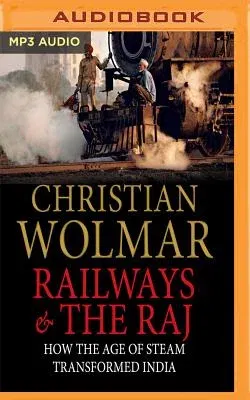India was the jewel in the crown of the British Empire. There were vast
riches to be exploited and vast numbers of people to be subjugated. How
better to achieve these aims than by building a rail network that
facilitated the export of raw material and made it easier for troops to
travel around the country to tackle uprisings?
India joined the railway age late: the first line was not completed
until 1853, but, by 1929, 41,000 miles of track served the country.
However, the creation of this vast network was not intended to modernise
India for the sake of its people but rather was a means for the colonial
power to govern the huge country under its control, serving its British
economic and military interests.
By building India's railways, Britain radically changed the nation but
also unwittingly created the preconditions of independence. While the
railways benefited India and were its first modern development, their
construction ultimately contributed to a stirring of nationalist
opinion, as resentment grew among the Indian population over the
conditions they endured when travelling by train and the barring of
Indians from the better paid railway jobs.
Despite the dubious intentions behind the construction of the network,
the Indian people quickly took to the railways, as the trains allowed
them to travel easily for the first time. The Indian Railways network
remains one of the largest in the world, serving over 25 million
passengers each day.
In this expertly told history, Christian Wolmar reveals the full story
of India's railways, from its very beginnings to the present day, and
examines the chequered role they have played in Indian history and the
creation of today's modern state.

